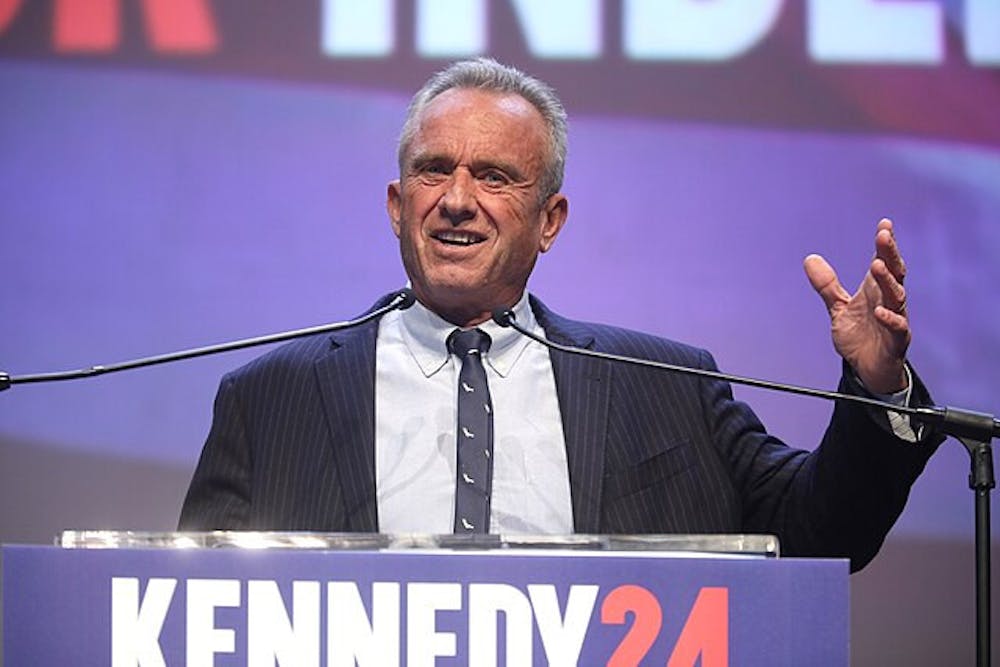The North Carolina State Board of Elections refused former third-party presidential candidate Robert F. Kennedy Jr.’s request to be removed from the state’s ballot in the upcoming election after he ended his candidacy Aug. 23.
In a Thursday 3-2 decision along party lines, the board’s Democratic majority ruled that ballots would be too “impractical” to reprint. At the time of the decision, 67 of North Carolina’s 100 counties had already received their printed absentee-by-mail ballots, which will be mailed to state residents beginning Sept. 6.
The move came as one in a series of attempts by Kennedy to remain on ballots in stronghold red and blue states across the country, while simultaneously seeking removal from ballots in battleground states.
“The statutory deadline of Sept. 6 can't be ignored just because of the capricious behavior of one party's candidate,” said NCSBE Board Member Siobhan Millen.
Kennedy responded Friday by suing the NCSBE for having “irreparably harmed him.”
The lawsuit claimed the NCSBE is “compelling speech in violation of [the Constitution]” and “refusing to acknowledge Kennedy’s statutory rights.”
NCSBE Executive Director Karen Brinson Bell explained that current changes to the ballots would likely impact the state’s ability to mail them by the statutory deadline. In addition to costs reaching the “high six-figure range,” the update process would take an estimated 12 to 13 days.
The denial on Thursday was one of two for Kennedy that day. While requesting removal from the N.C. ballot, the former independent candidate had simultaneously appealed to be added to the New York ticket. However, a N.Y. appeals court upheld a previous ruling to keep him off the ballot after finding he lied about residing in the state.
Although Kennedy endorsed Donald Trump for presidency after ending his candidacy, he previously ran under the independent We the People party.
The party was first recognized by the NCSBE July 16 in a 4-1 vote. The decision came after a June 26 denial of certification for three parties — including We the People — after board members expressed concerns about signature and address validity on each party’s petition.
The approval was challenged by the North Carolina Democratic Party, which argued that Kennedy’s campaign evaded stricter standards for independent candidates by posing as a political party.
Get The Chronicle straight to your inbox
Sign up for our weekly newsletter. Cancel at any time.
Ryan Kilgallen is a Trinity sophomore and an associate news editor for the news department.

